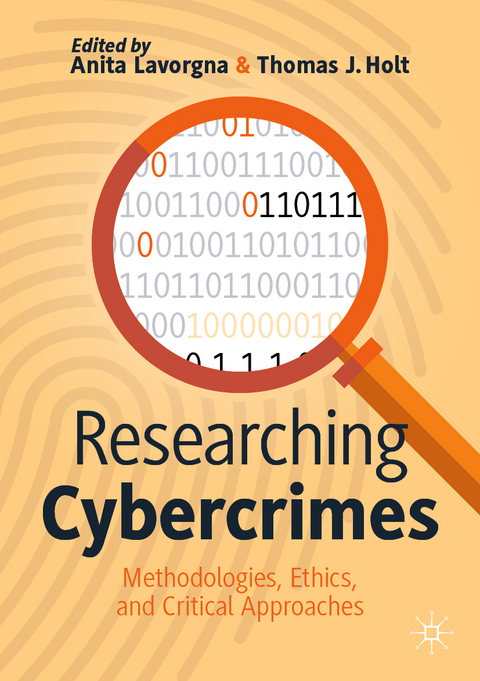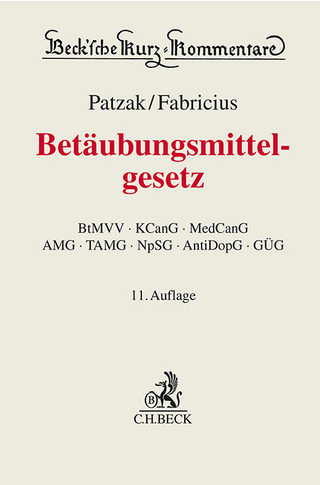
Researching Cybercrimes
Springer International Publishing (Verlag)
978-3-030-74836-4 (ISBN)
This edited book promotes and facilitates cybercrime research by providing a cutting-edge collection of perspectives on the critical usage of online data across platforms, as well as the implementation of both traditional and innovative analysis methods. The accessibility, variety and wealth of data available online presents substantial opportunities for researchers from different disciplines to study cybercrimes and, more generally, human behavior in cyberspace. The unique and dynamic characteristics of cyberspace often demand cross-disciplinary and cross-national research endeavors, but disciplinary, cultural and legal differences can hinder the ability of researchers to collaborate. This work also provides a review of the ethics associated with the use of online data sources across the globe. The authors are drawn from multiple disciplines and nations, providing unique insights into the value and challenges evident in online data use for cybercrime scholarship. It is a key text for researchers at the upper undergraduate level and above.
Anita Lavorgna is Associate Professor of Criminology at the University of Southampton, UK. Anita has an international research track record on and expertise in interdisciplinary research drawing together criminology, socio-legal studies, and web science. She has worked extensively on cybercrime, serious and organised crime, and online social harms.
Thomas J. Holt is Professor in the School of Criminal Justice at Michigan State University, USA. His research focuses on cybercrime, cyberterrorism, and the policy response to these phenomena. His work has appeared in a range of academic journals in criminology and criminal justice.
1. Introduction to Part I - Anita Lavorgna and Thomas J. Holt.- 2. Epistemologies of cyberspace: notes for interdisciplinary research, Anita Lavorgna.- 3. The how and why of cybercrime: the EU as a case study of the role of ideas, interests and institutions as drivers of a security-governance approach, Benjamin Farrand and Helena Carrapico.- 4. Programming the criminologist: developing cyber skills to investigate cybercrime, Ruth McAlister and Fabian Campbell-West.- 5. Profiling and predictions. Challenges in cybercrime research datafication, Bart Custers.- 6. Data-driven technologies in Justice Systems: Intersections of power, data configurations, and knowledge production, Pamela Ugwudike.- 7. Introduction to Part II, Anita Lavorgna and Thomas J. Holt.- 8. The challenges of empirically comparing cybercriminals and traditional offenders, Marleen Weulen Kranenbarg.- 9. Breaking the walls of silence: analyzing criminal investigations to improve our understanding of cybercrime - E. Rutger Leukfeldt and Edward R. Kleemans.- 10. Using digital open source and crowdsourced data in studies of deviance and crime, Rajeev V. Gundur, Mark Berry and Dean Taodang.- 11. Developing open-source databases from online sources to study online and offline phenomena, Emily Ann Greene-Colozzi, Joshua D. Freilich and Steven M. Chermak.- 12. Too much data? Opportunities and challenges of large datasets and cybercrime, Jack Hughes, Yi Ting Chua and Alice Hutchings.- 13. Use of Artificial Intelligence to support cybercrime research, Stuart E. Middleton.- 14. Honeypots for cybercrime research, Robert C. Perkins and C. Jordan Howell.- 15. Social and semantic online networks, Elena Pavan.- 16. Digital ethnography in cybercrime research: some notes from the virtual field, Nicholas Gibbs and Alexandra Hall.- 17. The meme is the method: examining the power of the image within extremist propaganda, Ashton Kingdon.- 18. Introduction to Part III, Anita Lavorgna and Thomas J. Holt.- 19. Researching cybercrime in the European Union: asking the right ethics questions, Francisco J. Castro-Toledo and Fernando Miró-Llinares.- 20. Ethical approaches to studying cybercrime: considerations, practice and experience in the United Kingdom, Brian Pickering, Silke Roth and Craig Webber.- 21. Conducting ethical research with online populations in the United States, Kacy Amory and George Burruss.- 22. Investigating the ethical boundaries for online research in Brazil, Felipe Cardoso Moreira de Oliveira.- 23. Ethics and internet-based cybercrime research in Australia, James Martin.- 24. Researching crime and deviance in Southeast Asia: challenges and ethics when using online data, Lennon Yao-Chung Chang and Souvik Mukherjee.- 25. The ethics of web crawling and web scraping in cybercrime research: navigating issues of consent, privacy and other potential harms associated with automated data collection, Russell Brewer, Bryce Westlake, Tahlia Hart and OmarArauza.- 26. Does the institution have a plan for that? Researcher safety and the ethics of institutional responsibility, Ashley A. Mattheis and Ashton Kingdon.- 27 Engaging with incels: reflexivity, identity and the female cybercrime ethnographic researcher, Lisa Sugiura.- 28. Personal reflections on researching fraud: challenges surrounding the ethics of "doing", Cassandra Cross.- 29. At the intersection of digital research and sexual violence: insights on gaining informed consent from vulnerable participants, Tully O'Neil.- 30. Concluding thoughts, Anita Lavorgna and Thomas J. Holt.
| Erscheinungsdatum | 02.08.2021 |
|---|---|
| Zusatzinfo | XXIX, 539 p. 12 illus., 6 illus. in color. |
| Verlagsort | Cham |
| Sprache | englisch |
| Maße | 148 x 210 mm |
| Gewicht | 739 g |
| Themenwelt | Recht / Steuern ► Strafrecht ► Besonderes Strafrecht |
| Recht / Steuern ► Strafrecht ► Kriminologie | |
| Schlagworte | computer science research methods • crime and technology • cybersecurity • data collection • digital ethnography • research ethics • researching crime online • Research methods • Research methods in the social sciences • security • Sociology Research Methods |
| ISBN-10 | 3-030-74836-7 / 3030748367 |
| ISBN-13 | 978-3-030-74836-4 / 9783030748364 |
| Zustand | Neuware |
| Haben Sie eine Frage zum Produkt? |
aus dem Bereich


